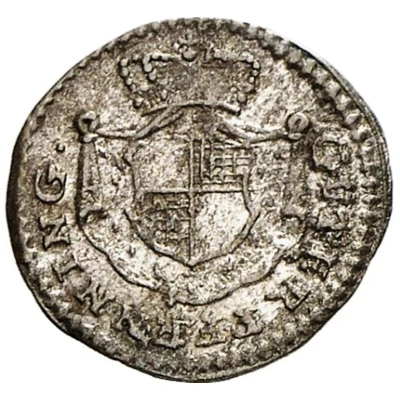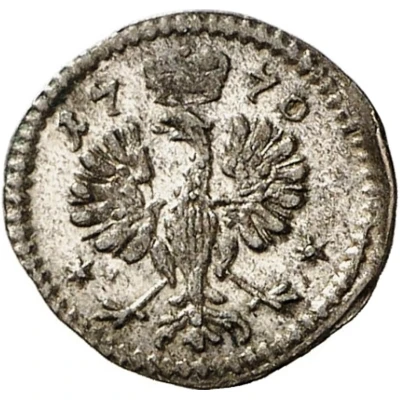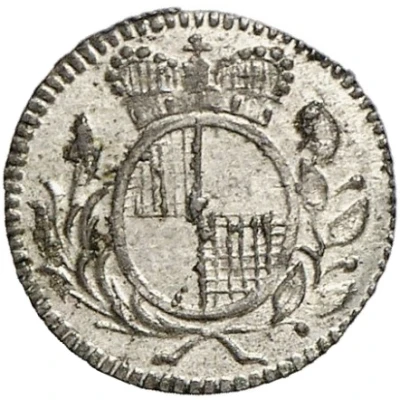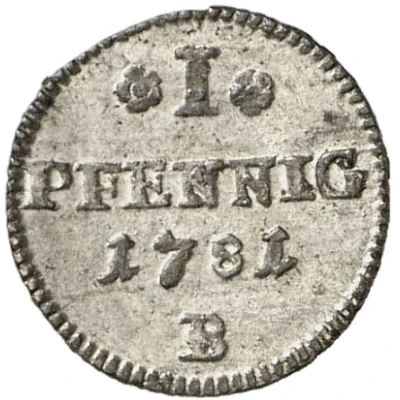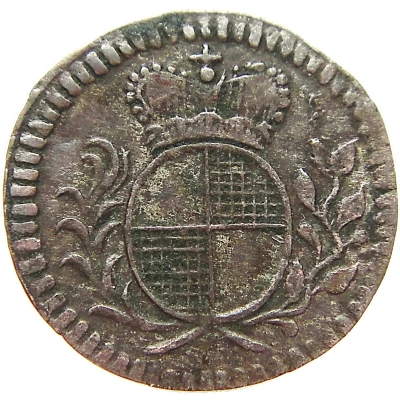
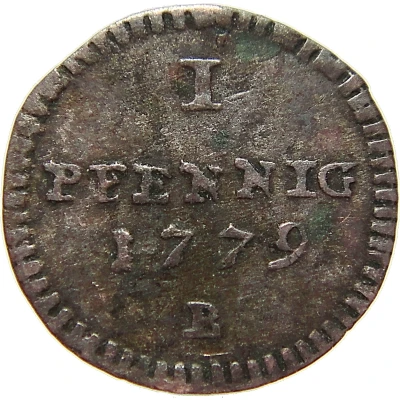

© LaZooRo (CC0)
1 Pfennig - Christian Frederick Charles Alexander
1779 year| Billon | 0.25 g | 12.8 mm |
| Issuer | Margraviate of Brandenburg-Ansbach (German States) |
|---|---|
| Margrave | Charles Alexander (Karl Alexander) (1757-1791) |
| Type | Standard circulation coin |
| Year | 1779 |
| Value | 1 Pfennig (1⁄288) |
| Currency | Thaler |
| Composition | Billon |
| Weight | 0.25 g |
| Diameter | 12.8 mm |
| Shape | Round |
| Orientation | Medal alignment ↑↑ |
| Demonetized | Yes |
| Updated | 2024-10-05 |
| Numista | N#294110 |
|---|---|
| Rarity index | 93% |
Reverse
Value with B and date below.
Script: Latin
Lettering:
I
PFENNIG
1779
B
Comment
Slg. Grüber 4831Interesting fact
One interesting fact about the 1 Pfennig coin from the Margraviate of Brandenburg-Ansbach is that it was made of Billon, a type of alloy that was commonly used in the production of coins during that time period. Billon is a mixture of silver and other metals, such as copper or tin, and was used to create a coin that was both durable and had a lower cost of production compared to pure silver coins. The use of Billon in the production of coins was a common practice in many German states during the 18th century, and the 1 Pfennig coin from Brandenburg-Ansbach is a notable example of this practice.
